GOD, RELIGION AND LIFE
Values and Attitudes – It is intended that the students will be able to:
- appreciate how religion explores and explains the enduring questions of human life and experience
- appreciate the tension which exists between good and evil
Knowledge – It is intended that the students will be able to:
- describe the religious dimension of human experience and the variety of ways in which people express their relationship with God
- identify aspects of good and evil, as expressed in personal actions and local, national and global issues
Skills – It is intended that the students will be able to:
- pose questions and research and communicate answers given by religions to fundamental human realities
- using contemporary case studies, analyse the impact of good and evil
SCRIPTURE AND JESUS
Values and Attitudes – It is intended that the students will be able to:
- appreciate developments in the Church’s understanding of Jesus and his teachings
- respect the role and significance of women in the Scriptures and in the Christian communities
Knowledge – It is intended that the students will be able to:
- describe various theological perspectives on Jesus Christ from the New Testament to the present
- recognise the place of Mary in Scripture, history and Tradition
Skills – It is intended that the students will be able to:
- apply an authentic Catholic approach to the interpretation of Scripture
- think critically about the role and significance of women in the contemporary Church and world
THE CHURCH AND COMMUNITY
Values and Attitudes – It is intended that the students will be able to:
- appreciate the importance of commitment to one’s own tradition as a way of making meaning of human experience
- be open to involvement in leadership and service activities
Knowledge – It is intended that the students will be able to:
- demonstrate knowledge of the principal beliefs, rituals and ethical teachings of Catholicism
- distinguish the place of leadership, mission and ministry in the life of the Church
Skills – It is intended that the students will be able to:
- articulate and synthesise the principal beliefs, rituals and ethical teachings of the Catholic Church
- appreciate the call to leadership and other forms of service for the baptised
PRAYER, LITURGY AND SACRAMENTS
Values and Attitudes – It is intended that the students will be able to:
- identify and explore the essential elements which enable human beings to make mature choices and commitments
- respect the Church’s tradition of prayer and liturgy
Knowledge – It is intended that the students will be able to:
- explain the significance of the celebrations of the Sacraments of Marriage and Orders
- demonstrate understanding of prayer and liturgy and its place in the life of the individual and the community
Skills – It is intended that the students will be able to:
- analyse and explain elements of sacrament, ritual and prayer in the celebration of the sacraments at the service of communion
- participate with the Church community in the preparation and celebration of prayer and liturgy
THE MORAL LIFE
Values and Attitudes – It is intended that the students will be able to:
- appreciate how individuals can make positive contributions to their own lives and the lives of others
- value the role of the Church’s teaching in giving moral guidance to personal and moral issues
Knowledge – It is intended that the students will be able to:
- explain the place of compassion and justice in the way the followers of Jesus are called to live
- identify the impact of the Church’s teaching on a range of personal and social issues
Skills – It is intended that the students will be able to:
- apply principles of virtue, especially justice and compassion, to one’s decisions and actions
- develop strategies for dealing with complex situations and making moral decisions
Year 11
GOD, RELIGION AND LIFE
- God created the universe with all its splendour and wonder, with its order, intelligibility and purpose.
- Many people, including theologians, scientists and philosophers, have demonstrated the logic of believing in a Creator who is all powerful and intelligent to explain the origin of the universe.
- Through the sin of Adam and Eve, evil, death and suffering entered the world.
- Jesus merited salvation for all humanity through his life, death and resurrection.
THE SCRIPTURES AND JESUS
- God became man for our salvation.
- There is substantial evidence for Jesus’ existence on earth.
- Jesus was the promised Messiah of the Old Testament.
- The resurrection of Christ was the greatest event in human history.
- The early Christians proclaimed Jesus as Son of God and Saviour.
- Most of Jesus’ miracles are works of mercy; they show God’s care and compassion for suffering humanity.
- Jesus is true God and true man.
THE CHURCH AND COMMUNITY
- All the baptised are called to holiness and service in the Church.
- Some members of the Church community are called to the ordained ministry and/or religious life.
- The priesthood is essential and central to the life of the Church as priests and bishops celebrate the sacraments which are the most efficacious means of grace for Christians.
PRAYER, LITURGY AND THE SACRAMENTS
- God created man and woman, with marriage embedded in their very nature.
- For baptised Christians, marriage is a sacrament and is called ‘Holy Matrimony.’
- Preparation for the sacrament of Matrimony is essential.
- Christian families are the ‘domestic church.’
- All of the sacraments are Trinitarian; when we worthily receive the sacraments we share in the very life of the Holy Trinity.
THE MORAL LIFE
- We are all called to holiness, to become saints.
- Christians can learn about saintly living by studying the lives of the saints.
- We can ask the saints to intercede for us to assist us along our journey of life.
- We are all called to be disciples of Jesus.
- If we love Jesus, we will keep his commandments.
- We need support, love and affirmation in living out our Christian vocation.
- Governments, companies and scientists should use scientific discoveries to enhance the wellbeing and dignity of humanity and, most importantly, to give glory to God.
Year 12
GOD, RELIGION AND LIFE
- God is the creator of the universe.
- All that God has created is good.
- Philosophical, theological and scientific reasoning together affirm that there is an all powerful Creator of the universe.
- Scientists, mathematicians and philosophers appreciate this order which can be expressed in laws, especially mathematical laws.
- Jesus Christ is the way, the truth and the life. In following him we find meaning in this life and eternal life forever in heaven.
THE SCRIPTURES AND JESUS
- The four Gospels are the heart of the Scriptures as they are our principal source of the life and teachings of Jesus Christ.
- The New Testament records the life and saving ministry of Jesus Christ and the foundation and development of the early Church.
- Acts elaborates on the Christian way of following Jesus as depicted in the lives of the earliest Christians.
- Acts gives important information about Sts Peter and Paul, including Paul’s missionary journeys.
THE CHURCH AND COMMUNITY
- Women figure prominently in the public life of Jesus.
- Many women throughout the centuries have been role models for loving and serving Jesus.
- Throughout the centuries men and women have dedicated themselves to God and the work of his Kingdom through taking vows of poverty, chastity and obedience.
- St Mary of the Cross is an outstanding example of a person who lived Religious Life in early Australia.
PRAYER, LITURGY AND THE SACRAMENTS
- The sacraments are efficacious signs of Christ’s grace in our lives.
- The sacraments celebrate Christ’s paschal mystery and empower us to be a priestly community living our lives united with him.
- They are signs of grace perceptible to the senses; through them divine life is bestowed upon believers.
- The Eucharist is the source and summit of the Christian life.
- At the Last Supper Jesus instituted the Holy Eucharist.
THE MORAL LIFE
- Men and women can express their relationship with God through the beauty of artistic work.
- Sacred artistic works aim to reflect the infinite beauty of God and turn hearts and minds devotedly to him.
- Religious art forms should manifest the teachings of the Church.
- All who follow Christ should seek guidance from the Holy Spirit, especially when important decisions need to be made.



